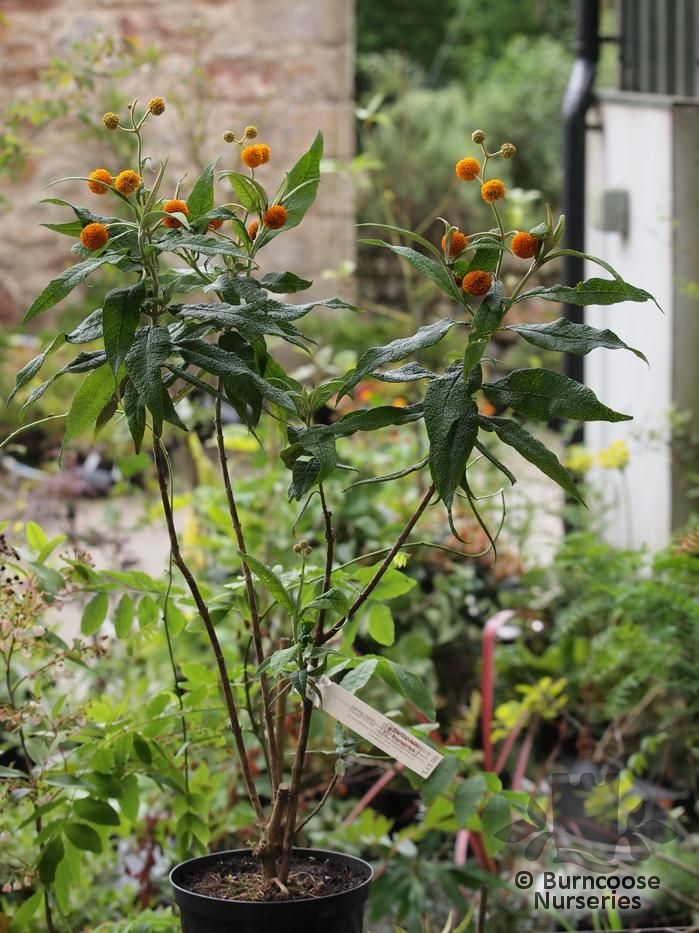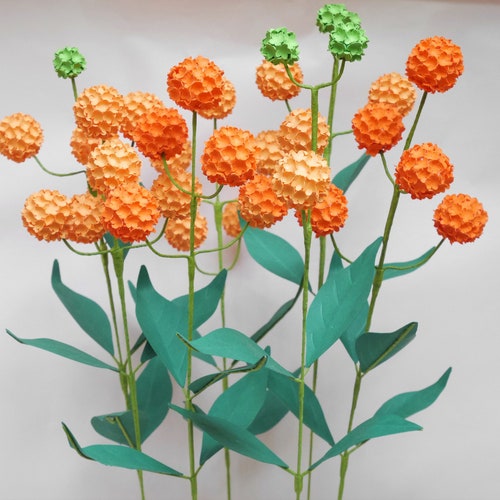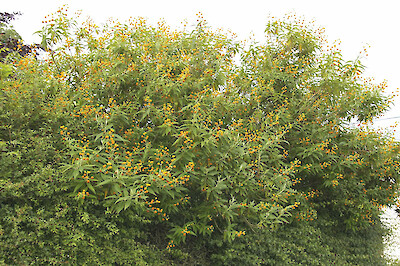Buddleja Globosa: The Ultimate Guide To Growing This Beautiful Shrub
Introduction
Buddleja globosa, also known as the orange ball tree, is a beautiful and easy-to-grow shrub that is native to South America. It is known for its fragrant, ball-shaped flowers that bloom in the summer. Buddleja globosa is a popular choice for gardens because it is drought-tolerant and can tolerate a wide range of soil conditions.
In this blog post, we will provide an ultimate guide to growing Buddleja globosa. We will cover everything you need to know, from choosing the right location to pruning and care.
Choosing the Right Location
Buddleja globosa prefers full sun, but it can tolerate some shade. It is important to choose a location that is protected from strong winds. The soil should be well-drained and slightly alkaline.
Planting
Buddleja globosa can be planted in the spring or fall. When planting, dig a hole that is twice as wide as the root ball. Backfill the hole with soil and water well.
Pruning
Buddleja globosa does not require a lot of pruning. However, you may want to prune it in the spring to remove any dead or damaged branches. You can also prune it in the fall to shape it.
Care
Buddleja globosa is a drought-tolerant plant, but it will benefit from regular watering during the summer months. You should also fertilize it once a year in the spring.
Problems
Buddleja globosa is a relatively problem-free plant. However, it can be susceptible to aphids, spider mites, and scale insects. You can control these pests with insecticidal soap or neem oil.
Conclusion
Buddleja globosa is a beautiful and easy-to-grow shrub that is perfect for any garden. With proper care, it will reward you with its fragrant flowers for many years to come.
Buddleja globosa, also known as the orange ball tree, is a beautiful and fragrant shrub that is native to South America. It is known for its large, globose clusters of orange flowers, which bloom from late summer to fall. Buddleja globosa is a relatively easy plant to grow, and it is a popular choice for gardens and pollinator gardens.
If you are interested in learning more about Buddleja globosa, I recommend visiting Home Gardening. This website provides detailed information about the plant, including its care requirements, planting instructions, and pest and disease management tips.
FAQ of buddleja globosa
Q: What is Buddleja globosa?
A: Buddleja globosa is a shrub native to Chile. It is also known as the orange ball tree, because of its clusters of orange-yellow flowers. Buddleja globosa is a fast-growing plant that can reach heights of up to 1.5 meters. It prefers full sun and well-drained soil.
Q: How do I grow Buddleja globosa?
A: Buddleja globosa is relatively easy to grow. It can be planted in the spring or fall. The soil should be well-drained and the plant should be watered regularly. Buddleja globosa will benefit from a light application of fertilizer in the spring.
Q: How do I prune Buddleja globosa?
A: Buddleja globosa should be pruned immediately after flowering. This will encourage new growth and more flowers the following year. The plant can be pruned back to about half its height.
Q: What are some common pests and diseases of Buddleja globosa?
A: Buddleja globosa is susceptible to a few pests and diseases, including aphids, scale, and powdery mildew. Aphids can be controlled with insecticidal soap or neem oil. Scale can be controlled with horticultural oil. Powdery mildew can be prevented by watering the plant in the morning so that the leaves dry before nightfall.
Q: How can I attract butterflies to my Buddleja globosa?
A: Buddleja globosa is a popular butterfly plant. Butterflies are attracted to the plant's nectar-rich flowers. You can attract more butterflies to your Buddleja globosa by planting it in a sunny location and providing a water source for the butterflies.
Image of buddleja globosa
- Buddleja globosa in full bloom. This image shows a large shrub of buddleja globosa covered in clusters of orange-red flowers. The flowers are tubular in shape and have a sweet fragrance.
- Close-up of buddleja globosa flowers. This image shows a close-up of the flowers of buddleja globosa. The flowers are a deep orange-red color and have a slightly fuzzy texture.

- Buddleja globosa in a garden setting. This image shows a buddleja globosa shrub planted in a garden. The shrub is surrounded by other flowering plants, including roses and lavender.

- Buddleja globosa leaves. This image shows the leaves of buddleja globosa. The leaves are a dark green color and have a serrated edge.
- Buddleja globosa bark. This image shows the bark of buddleja globosa. The bark is a grayish-brown color and has a fissured texture.

- Buddleja globosa in winter. This image shows a buddleja globosa shrub in winter. The leaves have fallen off, but the shrub is still visible.
- Buddleja globosa in a pot. This image shows a buddleja globosa shrub that is growing in a pot. The shrub is small, but it is covered in flowers.

- Buddleja globosa in a vase. This image shows a bunch of buddleja globosa flowers that are arranged in a vase. The flowers are a beautiful orange-red color and they have a sweet fragrance.
- Buddleja globosa silhouette. This image shows a silhouette of a buddleja globosa shrub against a sunset. The shrub is covered in flowers, and the flowers are a beautiful orange-red color.

- Buddleja globosa in a forest. This image shows a buddleja globosa shrub that is growing in a forest. The shrub is surrounded by other trees and plants, and it is covered in flowers.




Post a Comment for "Buddleja Globosa: The Ultimate Guide To Growing This Beautiful Shrub"